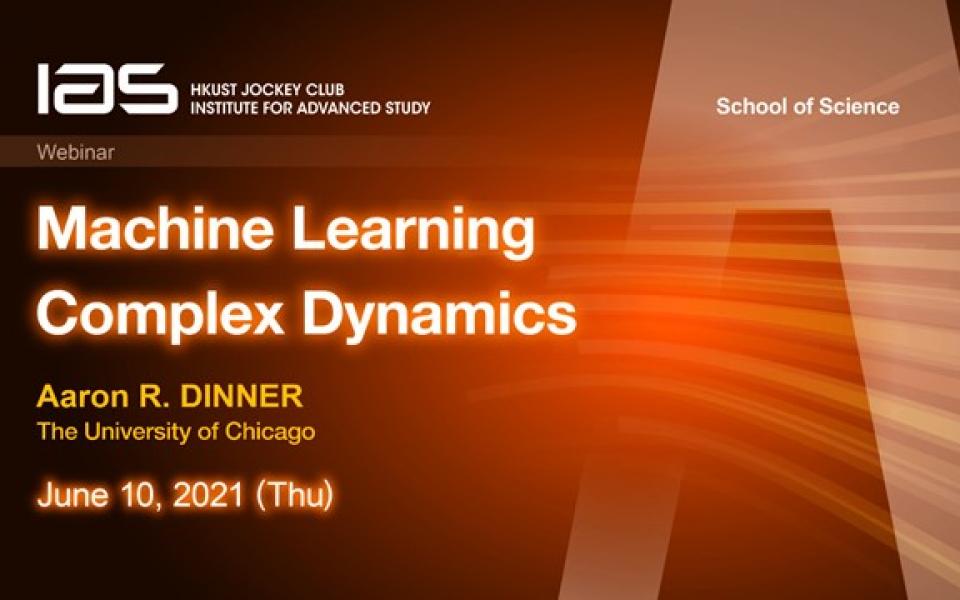Machine Learning Complex Dynamics
Supporting the below United Nations Sustainable Development Goals:支持以下聯合國可持續發展目標:支持以下联合国可持续发展目标:
Abstract
Understanding molecular mechanisms requires estimating dynamical statistics such as expected hitting times, reaction rates, and committors. In systems with well-defined metastable states and free energy barriers, these quantities can be estimated using enhanced sampling methods combined with classical rate theories. However, calculating such statistics for more complex processes with rugged landscapes or multiple pathways requires more general numerical methods. In this lecture, the speaker will describe a framework for calculating dynamical statistics by approximating the dynamical operators of the system through a Galerkin expansion. The input data can be many short molecular dynamics trajectories, launched from a non-equilibrium distribution of initial points. A specific choice of basis set in the expansion corresponds to a Markov state model. The speaker and his research group have compared this choice to a diffusion-map basis. In their numerical experiments, the diffusion-map basis gives results of comparable or better accuracy to Markov state models. The framework also naturally enables the use of delay embedding to account for memory arising from the use of a subset of coordinates to describe the system.
About the speaker
Prof. Aaron R. Dinner obtained his PhD in Biophysics from Harvard University in 1999. He then furthered his postdoctoral research in the University of Oxford and the University of California, Berkeley. In 2003, he joined the University of Chicago as an Assistant Professor and is currently the Professor of Chemistry.
Prof. Dinner and his research group develop theoretical and computational approaches to understand the physical chemical basis of complex behavior in living systems. Their research particularly interested in understanding how cells harness energy from their environments to organize their molecular interactions in space and time. To this end, they are working in close collaboration with experimental researchers to design and analyze quantitative measurements of living systems, and, in turn, implement predictive physical models. One feature of biological dynamics that makes this challenging is that they span a hierarchy of length and time scales ranging from ångstrom and femtoseconds to millimeters and days.
Prof. Dinner was elected a Fellow of the American Physical Society (2016). He also received numerous awards including the Hewlett-Packard Outstanding Junior Faculty Award by the American Chemical Society (2009); the Alfred P. Sloan Fellowship in Chemistry (2008) and the CAREER Award by the US National Science Foundation (2006).
